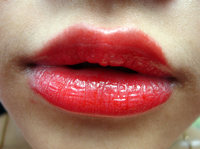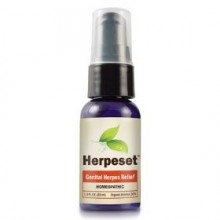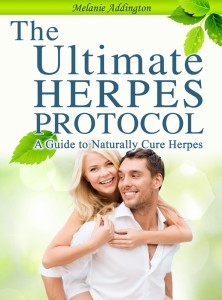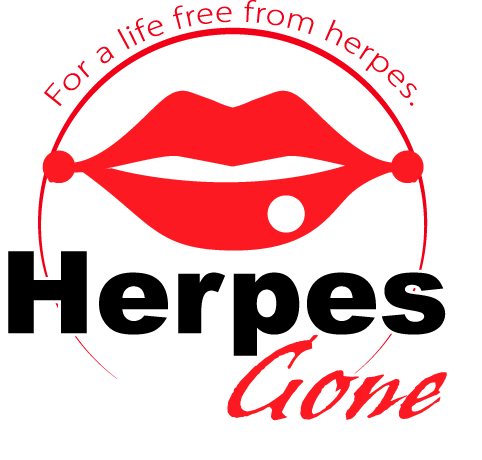It’s a condition nobody wants to talk about. A herpes diagnosis can leave you feeling ashamed, alone and depressed. For many people the emotional impact can be even worse than the physical symptoms. And then there’s the effect it has on your existing or future romantic relationships. Worse, most people believe there is no herpes cure.

Doctor’s may not be able to offer you satisfying help with herpes, but natural medicine just might!
Your doctor won’t be able to offer you much comfort or hope, since there is no officially recognized herpes cure in 2019. So how to get rid of herpes then? According to him, there’s no way to get rid of the disease and all conventional medicine can do is help you manage the symptoms. You have a lifetime of swallowing toxic medication to look forward to; and it won’t be cheap.
But the truth is that between 60% and 95% of adults worldwide are infected with either HSV-1 or HSV-2. You’re certainly not alone and you don’t have to live with uncomfortable, embarrassing breakouts for the rest of your life either.
Alternative medicine holds the answer. Herpes is not a new disease. In fact we’ve known about it for about 2000 years. During that time, many homeopathic remedies have been developed to treat the disease. Not only do they offer faster results with fewer side effects than conventional medicine, but they can actually eliminate the virus from your system.
This page is meant to make herpes sufferers aware of what they should know about this virus as well as some of the best options of a herpes cure that are readily available.
Table of Contents
Understanding the Herpes Virus
Herpes is a viral infection caused by the herpes simplex virus (HSV). After the initial infection clears up, the virus is transported along sensory nerves to the nerve cell bodies (where it remains for the rest of your life). Herpes cycles between active and inactive phases. Although you may not have any symptoms, it remains in your body and you can still infect others with it.
You may have heard that there are two different types of herpes. One is responsible for cold sores and fever blisters; the other is responsible for genital herpes. This is how they’re classified:

Viruses are rarely pleasant, and herpes is no exception to the rule!
Herpes Simplex Virus 1 (HSV-1): Tends to occur above the waist, especially on the lips, eyes and face. It is also referred to as orofacial herpes. Outbreaks tend to be mild but complications can occur. Herpes whitlow refers to a herpes infection that affects the thumbs and fingers. It can also infect the eyes, and more rarely, the brain.
Herpes Simplex Virus 2 (HSV-2): Commonly referred to as genital herpes as outbreaks affect areas below the waist. Most obvious symptoms include inflamed blisters on the genitals in both men and women. It may also become present on the buttocks and the back of the thighs. Neonatal herpes simplex may occur when a mother passes the virus on to her child during birth.
The truth is, these two types of herpes viruses are almost identical. Both infect the mucosal areas of the body—warm and wet places like the mouth and genitals. After the first outbreak, they both retreat to the nerve cells where they remain, causing future outbreaks. They are only classified this way based on the primary site of infection. In fact, either type can reside in both parts of the body.
Whether you suffer from cold sores or genital herpes, the infection is the same. This means that both can be treated with the same protocols.
Recognising Symptoms and Getting a Diagnosis
Your first outbreak was probably the most painful. You may have experienced a tingling, itching sensation on your skin before the appearance of painful, fluid-filled blisters. This is a sign that the virus has begun to multiply within the skin cells. They will crust over and eventually disappear as new skin forms beneath them; but this can take a long time. And depending on where they appear, this will cause a lot of pain and itching. You might also have experienced some flu-like symptoms such as swollen glands, headaches, muscle aches and fever. The urethra may also be affected which results in a burning sensation when you urinate.

The corners of your lips are common spots for herpes symptoms to appear in the form of cold sores.
After this, you may experience several outbreaks over the course of a year. Although not all outbreaks will be as severe as the first one, you’ll most likely have to deal with the pain, discomfort and embarrassment of unsightly sores that can make you feel self-conscious.
Most doctors will be able to diagnose a patient with herpes on presentation of these symptoms alone. The tell-tale tingling sensation is the most obvious indication that the herpes virus is at work. You’ll become familiar with it and be able to recognise when a flare-up is about to occur. Treating yourself at this stage will help you reduce the severity of the symptoms and possibly avoid a full-blown episode altogether. Or you may just be able to reduce the length of time it lasts.
However, genital herpes can be more difficult to diagnose than oral herpes. Often, patients are asymptomatic (meaning they don’t have any of the more classical symptoms). Your doctor may need to take a culture of the infected area, or a skin biopsy which will be sent to a laboratory for testing. While these kinds of tests produce the best results, they can be very expensive.
Using serum to test for the virus is cheaper, but the results are not as conclusive. They cannot tell you whether you have been infected with HSV-1 or HSV-2. A blood test may also look for antibodies in the blood that indicate the presence of an infection, but again, they cannot tell which virus you have been infected with.
Most recently, the Immunodot glycoprotein G-specific test is 98% effective at recognising which herpes virus is responsible for the infection. Getting the right diagnosis is essential. It will aid you in determining what treatments to use and what results to expect. Once you know which of the herpes virus you’re infected with, you can take the proper precautions to ensure that you don’t spread the virus to people you love. Because the virus affects the immune system, children are especially vulnerable to unintentional infection. Their immune systems are not as well developed and will not be able to fight it as effectively as adults. Women in particular need to take extra care and should have regular pap smears to ensure the infection has not spread to their cervix.
Preventing the Transmission of Herpes

Something with as good intentions as a kiss can spread the herpes virus.
Even if you are getting treatment for herpes, it is important to be aware of the risks of transmitting the virus. Because the virus can be spread so easily and during any phase it the cycle, taking the right precautions can help you reduce the risk of infecting others.
Both HSV-1 and HSV-2 can be spread by direct skin-to-skin contact. If you have a cold sore and you kiss someone, you can infect them. HSV-2 is considered a sexually transmitted disease and if you have active genital herpes you can infect your partner through vaginal or anal intercourse. It can also be spread through oral sex. If you have a cold sore, you can still give your partner genital herpes.
Naturally, the virus is most likely to be spread when active symptoms are present. From the time you first experience the ‘prodromal symptoms’ of tingling and itching, until the skin has completely healed, you are most likely to infect others. The risk of infection increases up to 75% during this active phase.
Unfortunately, even though the risk decreases significantly, there is still a chance that you can infect someone while the infection is in the dormant stage. Between flare-ups, even when you are not exhibiting any symptoms, the virus is still active and can be transmitted. In fact, some carriers may be asymptomatic with almost no symptoms, or symptoms so mild that they are unaware they are spreading the virus.
The best way to avoid infecting your partner is to abstain from sexual intercourse during active periods. Between outbreaks, make sure you use condoms to avoid the risk of infection during asymptomatic periods.
It’s even possible for you to infect yourself! By touching your sores you could accidentally spread the infection to other parts of your body. But this is easy to avoid if you remember to practise proper hygiene. Avoid touching the infected area and wash your hands as often as possible. The herpes simplex virus is easily killed with soap and water.
Women also run the risk of infecting their new-born children with the virus during childbirth. Even if you haven’t had an outbreak for a long time, it’s important to tell your doctor if you’ve been exposed to herpes. You can be tested before going into labour and if the results are negative, a vaginal delivery may be safe. Otherwise, the only way to prevent infecting your baby is by having a caesarean section.
Herpes Cure: How to Get Rid of Herpes Naturally
Being diagnosed with herpes can feel like a life sentence. But you don’t have to rely on expensive, toxic antivirals that only promise to reduce the frequency and severity of future outbreaks. Natural alternatives work with your body’s immune system to fight the virus, coming very close to being a herpes cure.

Herpeset is a very effective and all natural way to relieve herpes symptoms such as cold sores/fever blisters.
To deal with outbreaks, there are a number of natural substances that can alleviate the tingling, itching and burning that comes from the blisters that appear. Aloe Vera and Zinc are available as topical treatments that soothe the skin and promote faster healing. Herpeset combines the healing properties of nine ingredients to provide relief from cold sores. It contains some of the most powerful natural ingredients for treating an herpes outbreak, including:
- Rhustox: Used by homeopaths to treat itching and inflammation.
- ApisMellifica: Provides relief from stinging, burning pain and swelling.
- Baptista Wild Indigo): Reduces the duration and severity of mouth ulcers.
- Capsicum: A natural painkiller that improves the overall health of the skin.
- NitricumAcidum: Stops bleeding and promotes healing for cracks and fissures in the skin.
- Pyrogenium: Speeds the healing of painful abscesses.
Available as a handy spray application, Herpeset can be used when you first notice the start of a breakout. None of the ingredients will cause you any of the side-effects you would get from using prescribed medication. However it is always safer to follow the advice of your doctor in these situations. You can learn more by visiting Herpesets official site here.
Treating recurrences is important. But if you really want to rid yourself of herpes forever,

The Ultimate Herpes Protocol deals with the actual virus and doesn’t just focus on treating symptoms. In short it’s a guide on how to get rid of herpes.
you’ll want to get a copy of The Ultimate Herpes Protocol by Melanie Addington. In this e-book, Melanie shares her very personal and heart-breaking story of her experience with herpes. After being diagnosed, she was frustrated to learn that conventional medicine couldn’t help her.
She suffered from the side-effects of the medications her doctor prescribed and couldn’t imagine living the rest of her life with this disease. She finally turned to her father, a ‘medical maverick’ and together they developed a system to attack the virus on three fronts—eventually destroying it.
Firstly, it describes what you need to do to help your immune system battle the virus. The body possesses the ability to fight it, but our systems are often weakened due to stress and poor eating habits. Once you’ve strengthened your immune system you can tackle the virus head on.
Like many viruses, herpes has a protective protein barrier that enables it to survive the efforts of your immune system to destroy it. But the Ultimate Herpes Protocol will show you how to dissolve this coating. This leaves it vulnerable and your own immune system can do the rest.
Finally, you’ll learn how to stop the virus from replicating. This means you won’t have to worry about any more flare-ups. So far, over 7500 people have succeeded in completely ridding themselves of herpes using the protocol. It may take a month or two, but you will see results in as little as a week if you follow the advice laid out in this e-book.
If you’re serious about freeing yourself from the pain and shame associated with herpes, and you’re willing to put some time and effort into treating yourself, the Ultimate Herpes Protocol is likely the herpes cure you’ve been looking for. You can check it out on the official website here.
People tend to make jokes about herpes, but for sufferers, it’s no laughing matter. The physical symptoms can be painful and embarrassing, but it’s the psychological effects and social stigma that can do the most damage. However, if you take a proactive approach and do some research you’ll find that a cure does exist. Thousands of people have discovered the secret to beating herpes. Alternative medicines seem to be more effective, safer to use and won’t cost you a fortune. Are you ready to put an end to your suffering and get rid of herpes once and for all?
